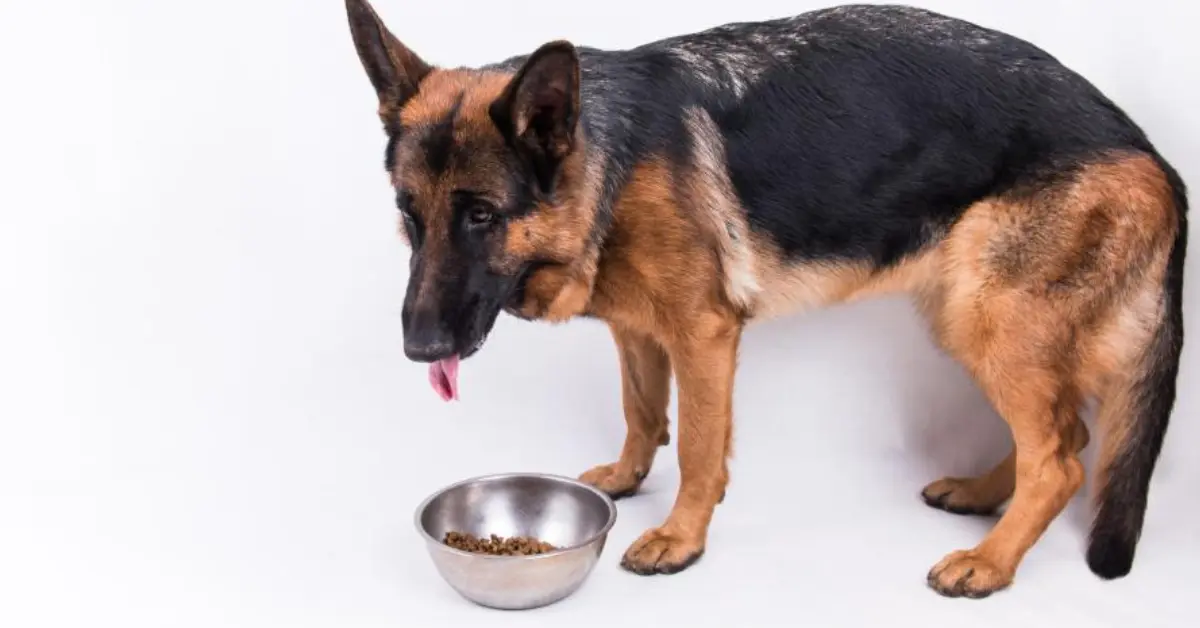Selecting the right dog food for your German Shepherd is crucial to their overall health and well-being. These majestic and intelligent creatures are known for their active lifestyle and loyalty, but they also have specific dietary needs that must be met. In this article, we’ll explore the worst dog food choices for German Shepherds, shedding light on why certain ingredients and brands can be detrimental to their health.
Do German Shepherds Have Sensitive Stomachs?
German Shepherds are prone to sensitive stomachs, which makes dietary choices all the more important. This sensitivity can lead to digestive issues, allergies, and discomfort. Therefore, it’s essential to avoid dog foods that contain artificial additives, fillers, and excessive amounts of grains.
Worst Dog Food Brands for German Shepherds

Some dog food brands may not provide the quality nutrition that German Shepherds need. Brands that prioritize profits over the well-being of your pet often include subpar ingredients and lack essential nutrients. These brands may also use artificial flavors and colors that can harm your dog’s health in the long run.
Sodium Tripolyphosphate in Dog Food
Sodium tripolyphosphate is commonly used as a preservative and to improve the texture of dog food. However, it can lead to health issues in German Shepherds, such as kidney problems and urinary tract infections. Avoid dog foods that contain this chemical to ensure your furry friend’s well-being.
What Foods Can German Shepherds Not Eat?
Certain foods should never be included in a German Shepherd’s diet. These include chocolate, grapes, raisins, onions, and garlic. These foods can be toxic and pose serious health risks, ranging from digestive problems to organ failure.
Worst Dog Foods for Dogs
German Shepherds, like all dogs, require a balanced and nutritious diet. Low-quality dog foods often lack essential nutrients, leading to deficiencies that can impact their health, energy levels, and longevity. Avoid foods with vague ingredient lists and opt for those with high-quality protein sources.
Worst Dog Food Ingredients
Some ingredients commonly found in dog foods can be harmful to German Shepherds. These include artificial preservatives, artificial colors, high levels of carbohydrates, and excessive amounts of filler ingredients. These components can contribute to obesity, allergies, and other health issues.
Worst Dog Food to Feed Your Dog
When selecting dog food for your German Shepherd, steer clear of options that are primarily comprised of by-products, meat meals, and artificial additives. These ingredients can lead to obesity, allergies, and digestive problems over time.
Raw Diet for German Shepherds
While a raw diet may seem appealing, it’s essential to approach this choice with caution. Raw diets can lack essential nutrients, and there’s a risk of bacterial contamination. Consult with a veterinarian before transitioning your German Shepherd to a raw diet to ensure its nutritional needs are met.
Common Misconceptions About Feeding German Shepherds

It’s important to dispel some common misconceptions about feeding German Shepherds. One prevalent belief is that more affordable dog food options are just as good as premium ones. However, inexpensive dog foods often contain lower-quality ingredients and fillers, which can lead to health problems over time. Investing in a high-quality dog food brand may result in fewer veterinary bills and a healthier, happier pet.
Another misconception is that all dogs have the same nutritional needs. While some basic nutritional requirements are shared among all dogs, different breeds, sizes, and ages have specific needs that must be met. German Shepherds, for instance, require higher protein levels to support their active lifestyle and maintain lean muscle mass.
How Much Should I Feed My German Shepherd?
The appropriate amount of food for a German Shepherd depends on factors such as age, activity level, and overall health. Consult with your veterinarian to determine the right portion size to maintain a healthy weight and support your well-being.
Creating a Well-Balanced Diet for Your German Shepherd
To provide your German Shepherd with the best possible nutrition, aim for a well-balanced diet that includes:
High-Quality Protein: Look for dog foods with real meat as the primary ingredient. Protein supports muscle development and overall health.
Healthy Fats: Essential fatty acids, such as omega-3 and omega-6, contribute to a healthy coat, skin, and immune system.
Complex Carbohydrates: Opt for whole grains like brown rice and sweet potatoes to provide sustained energy.
Fruits and Vegetables: These provide essential vitamins, minerals, and antioxidants that support overall well-being.
Avoiding Harmful Ingredients: Stay away from dog foods that contain artificial preservatives, colors, and flavors. Additionally, avoid excessive sodium levels and fillers.
Transitioning to a New Diet
If you’re planning to switch your German Shepherd’s diet, do so gradually to avoid digestive upset. Gradually mix the new dog food with the old, increasing the proportion of the new food over a week or two. Observe your dog’s behavior, stool consistency, and overall health during the transition.
Consulting Your Veterinarian
Ultimately, the best way to determine the ideal diet for your German Shepherd is to consult with a veterinarian. They can provide personalized recommendations based on your dog’s specific needs, health status, and any potential sensitivities.
In conclusion, providing your German Shepherd with high-quality nutrition is a key factor in ensuring their long and healthy life. Be vigilant about the ingredients in your dog’s food, avoid harmful additives, and prioritize a well-balanced diet that meets their unique requirements. By making informed choices, you’re actively contributing to your loyal companion’s well-being and happiness.
Conclusion
Choosing the right dog food for your German Shepherd is a critical decision that can impact their health and longevity. Avoiding the worst dog food choices means steering clear of brands with subpar ingredients and opting for those with high-quality protein sources and minimal additives. Prioritize your loyal companion’s well-being by providing them with the nourishment they deserve.
FAQs
Can I give my German Shepherd human food leftovers?
It’s best to avoid feeding your German Shepherd human food leftovers, as some ingredients can be harmful. Stick to a well-balanced, high-quality dog food diet.
Is a grain-free diet suitable for German Shepherds?
While some German Shepherds may benefit from a grain-free diet, it’s essential to consult with a veterinarian before making such a dietary change.
Are all commercial dog treats safe for German Shepherds?
Not all commercial dog treats are safe for German Shepherds. Read ingredient labels carefully and opt for treats that are made from wholesome ingredients.
Should I supplement my German Shepherd’s diet with vitamins?
Consult with a veterinarian before adding any supplements to your German Shepherd’s diet. A balanced, high-quality dog food should provide most of the necessary nutrients.
Can a poor diet affect my German Shepherd’s behavior?
Yes, a poor diet can affect your German Shepherd’s behavior and overall well-being. Nutritional deficiencies can lead to lethargy, irritability, and other behavioral issues.

